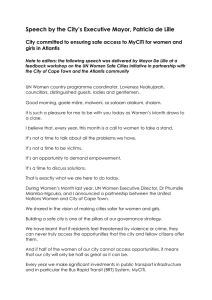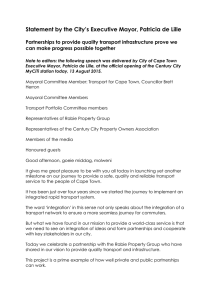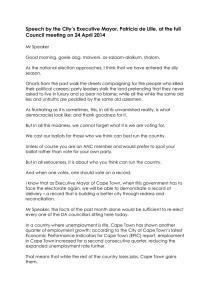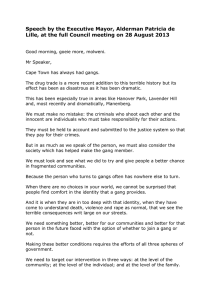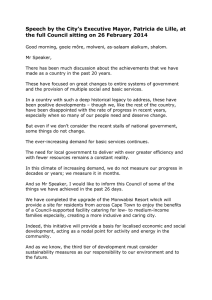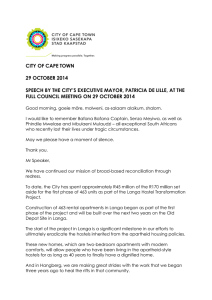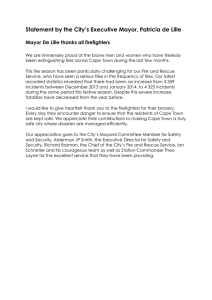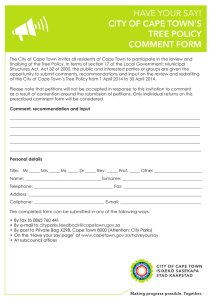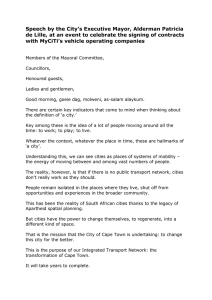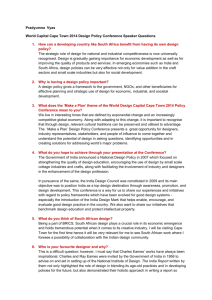Statement by the City’s Executive Mayor, Patricia de Lille
advertisement
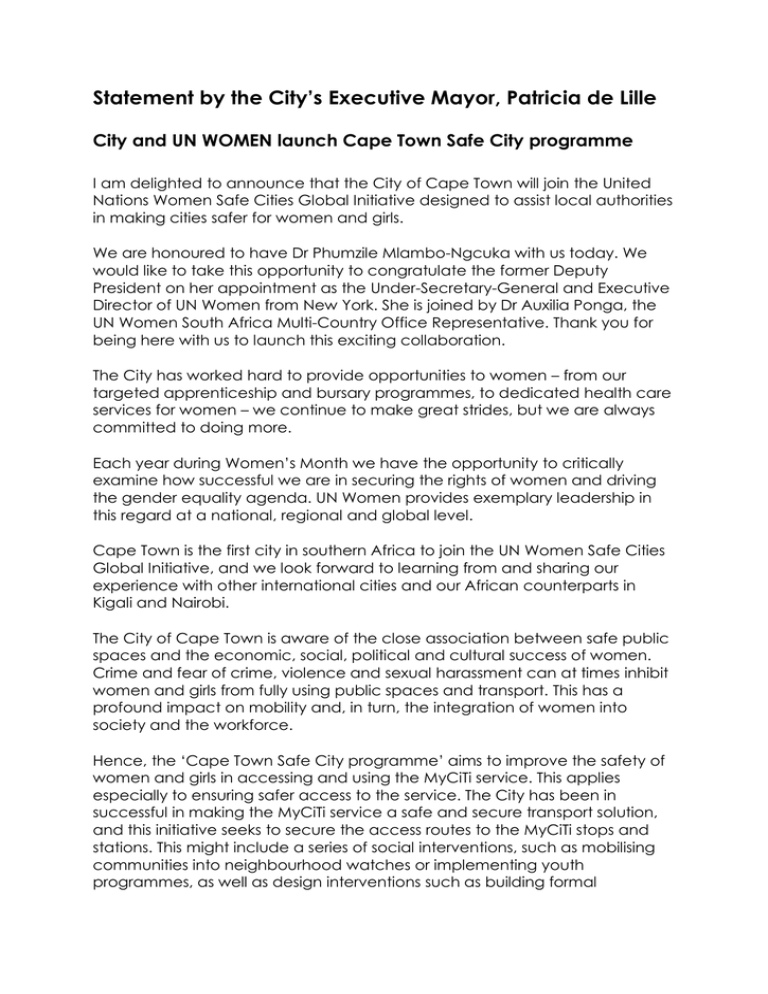
Statement by the City’s Executive Mayor, Patricia de Lille City and UN WOMEN launch Cape Town Safe City programme I am delighted to announce that the City of Cape Town will join the United Nations Women Safe Cities Global Initiative designed to assist local authorities in making cities safer for women and girls. We are honoured to have Dr Phumzile Mlambo-Ngcuka with us today. We would like to take this opportunity to congratulate the former Deputy President on her appointment as the Under-Secretary-General and Executive Director of UN Women from New York. She is joined by Dr Auxilia Ponga, the UN Women South Africa Multi-Country Office Representative. Thank you for being here with us to launch this exciting collaboration. The City has worked hard to provide opportunities to women – from our targeted apprenticeship and bursary programmes, to dedicated health care services for women – we continue to make great strides, but we are always committed to doing more. Each year during Women’s Month we have the opportunity to critically examine how successful we are in securing the rights of women and driving the gender equality agenda. UN Women provides exemplary leadership in this regard at a national, regional and global level. Cape Town is the first city in southern Africa to join the UN Women Safe Cities Global Initiative, and we look forward to learning from and sharing our experience with other international cities and our African counterparts in Kigali and Nairobi. The City of Cape Town is aware of the close association between safe public spaces and the economic, social, political and cultural success of women. Crime and fear of crime, violence and sexual harassment can at times inhibit women and girls from fully using public spaces and transport. This has a profound impact on mobility and, in turn, the integration of women into society and the workforce. Hence, the ‘Cape Town Safe City programme’ aims to improve the safety of women and girls in accessing and using the MyCiTi service. This applies especially to ensuring safer access to the service. The City has been in successful in making the MyCiTi service a safe and secure transport solution, and this initiative seeks to secure the access routes to the MyCiTi stops and stations. This might include a series of social interventions, such as mobilising communities into neighbourhood watches or implementing youth programmes, as well as design interventions such as building formal pathways, bringing undeveloped vacant land into active use and providing clear and legible movement networks. The Atlantis MyCiTi service has been selected as the pilot intervention area for this project. Atlantis has a very young population with 36% of the community under the age of 34, and is grappling with complex socio-economic issues, including crime. The roll-out of the service to Atlantis in April 2014 was an important milestone in bringing the community closer to economic opportunities. This has been coupled with efforts to revitalise the area. The UN Women Safe City’s project provides an opportunity to deepen and strengthen our commitment to people living in Atlantis as well as enabling the City to analyse the influence of the public transport system on women and girls. There has been a lot of work behind the scenes to facilitate this partnership. We are grateful for the support and guidance from the UN Women New York and Pretoria Offices. An internal transversal project team has been established and is ready to roll out a scoping study which will inform the design of the project. Guided by UN Women’s best practice, the City will utilise a participatory and collaborative process, involving women and girls in the design and implementation of the project. As the World Design Capital 2014, we have learnt new ways to design and we hope to utilise this knowledge and experience in our Safe Cities project. The City has also committed to monitoring and evaluating the impact of this project and using the lessons learnt to roll out to other areas and influence other programmes and projects. This is not a once-off, stand-alone project but an opportunity to practise gender mainstreaming and realise our goals of being an opportunity, caring, safe, inclusive and well-run city for all – men and women alike.
